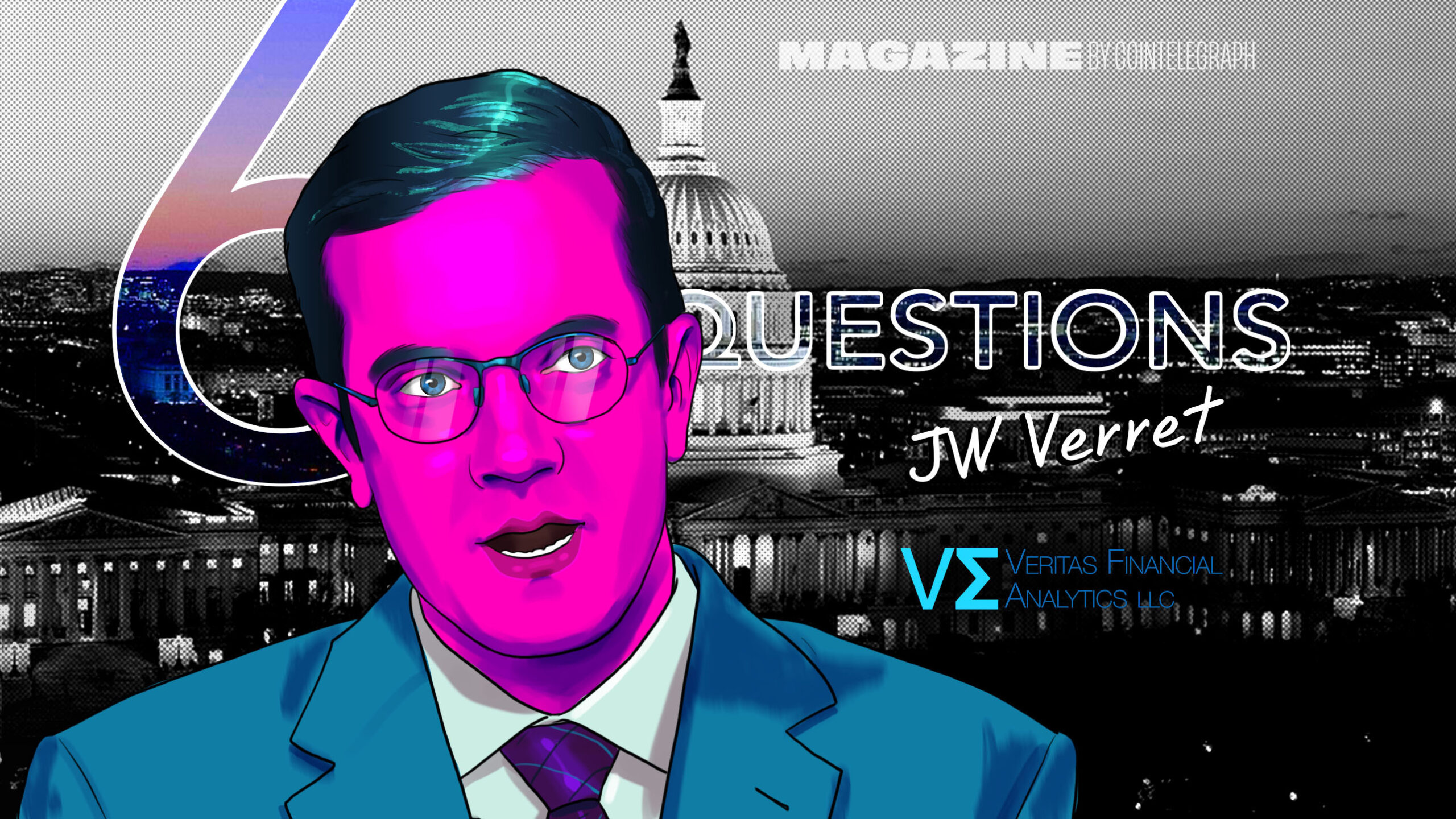J.W. Verret is a Harvard-educated attorney who teaches corporate finance and accounting at George Mason University. His work has increas
J.W. Verret is a Harvard-educated attorney who teaches corporate finance and accounting at George Mason University. His work has increasingly intersected with the crypto sector in recent years, as his legion of Twitter followers — who know him as “BlockProf,” or the Blockchain Professor — are poignantly aware.
1) You’re very busy professionally — teaching at George Mason University, serving on committees with the Securities and Exchange Commission, going to trials as expert witness. How did life lead you to cryptocurrency?
I spent 15 years as a libertarian regulation/financial person, writing it, think-tanking it in Washington, D.C. For the first 10 years, I lost everything I fought for in the Dodd-Frank era.
The thing with crypto is that it’s been a freedom revolution in finance. It fixes, or aims to fix, problems in finance that government regulation only aims to fix. Regulation entrenches intermediaries where crypto fixes problems by eliminating the need for those intermediaries. And that was very interesting to me.
2) You served on the SEC’s Investor Advisory Committee. You’ve also been very vocal in criticising Chairman Gary Gensler. How was that experience?
It was a good experience. I replaced Hester Pierce when she became an SEC commissioner. I wrote a lot of dissents as a committee member, so I hope I did Hester proud, but I do not think they’ll invite me back in the future under the current chairman. It seems like he’s been trying to just destroy this industry. He could’ve reached out to the industry to try to make things work, but he has no interest in that, and he’s sued some of the best actors in crypto — Coinbase and Kraken — while ignoring the worst.
3) You’re a vocal proponent of ZCash. Explain your interest there.
Zcash is like Bitcoin, but private. It’a a great invention. Whoever the developers were deserve a Nobel Prize.
I own a lot of Bitcoin. I think it’s a tremendous innovation. But for day-to-day payments, I think we need some privacy, and it’s hard to get that with Bitcoin. I’m also a fan of Monero. which has some pretty good privacy technology. But they’re both pretty good projects — t’s possible to like both the Rolling Stones and the Beatles.
Also read: The Supreme Court could stop the SEC’s war on crypto
There are no other privacy tokens that are in the same ballpark. There are some that are really neat innovations, but they’re not at the level you need to have the same privacy. There are some interesting ones, sure. Other projects I’m very excited about are Samourai Wallet and Sparrow Wallet, which offer a bit of privacy for BItcoin transactions.
4) On that note, how do you think the future of crypto is going to be defined? Is it going to be defined as a way to achieve greater privacy in transaction? Will it be defined by efficiency in the sense that it’s easier to use than traditional finance instruments? Will it be defined by crime? Or will it be some mixture of these?
That’s an interesting question. I think it will be some combination of all those things. Crime is often a testing ground for new technology. It certainly was for the internet. In the 1990s, a lot of criminals used the internet. I think the strongest forces in determining what cryptos survive will be some mixture of efficiency and scale, but I think privacy will be a part of it. As governments and big corporations fight back against trustless, disintermediated property transfers, the only way to protect yourself will be using privacy coins and privacy protocols.
5) You’re also serving as a professional witness in U.S. v. Sterlingov, which involves the U.S. government charging Roman Sterlingov with developing Bitcoin Fog, a crypto mixer. Tell me about that.
I spend a lot of time as a forensic accountant, but I’m also into privacy. Some people think that’s a conflict: How can you be privacy while also following the money? But I don’t see that as a conflict at all. Some of the people most into privacy who I know are forensic investigators. I’m a believer in public information. People should learn what it takes to be private. The worst people tend not to be smart anyway — they make mistakes, and they don’t use privacy tools optimally.
Also read: Elizabeth Warren wants the police at your door in 2024
In terms of U.S. v. Sterlingov, I’m providing some expert help in forensic accounting and money laundering. It’s been helpful to merge my legal and accounting perspectives to aid the legal team. I also do some work helping customers of large crypto exchanges when their crypto is frozen, and we ultimately resolve it when we figure out that the customer did nothing wrong — but were falsely flagged by crypto tracing tools.
False positives in crypto tracing can have a real cost and that is one thing that concerns me about the dominance of some of the tracing firms. TRM…
cointelegraph.com

COMMENTS